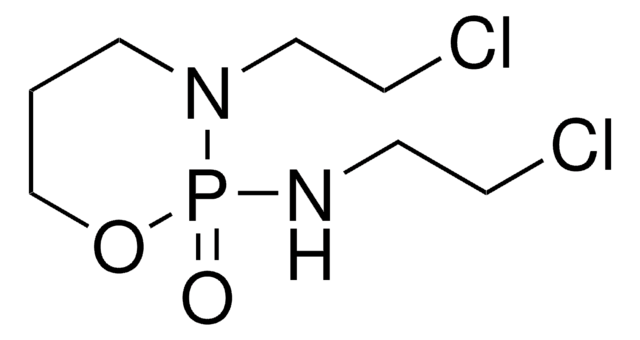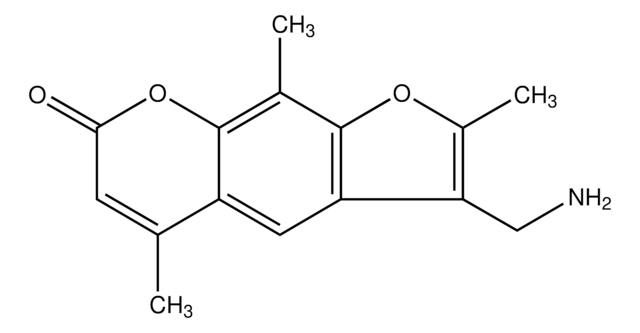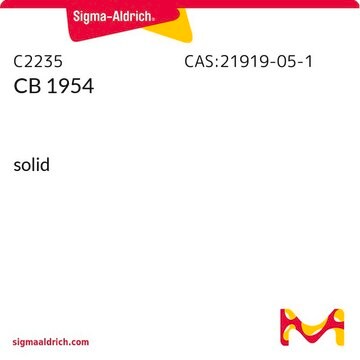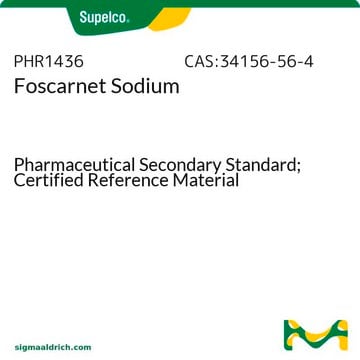C0253
Chlorambucil
Synonym(s):
4-(4-[Bis(2-chloroethyl)amino]phenyl)butyric acid, 4-[Bis(2-chloroethyl)amino]benzenebutyric acid
About This Item
Recommended Products
form
powder
Quality Level
storage temp.
2-8°C
SMILES string
OC(=O)CCCc1ccc(cc1)N(CCCl)CCCl
InChI
1S/C14H19Cl2NO2/c15-8-10-17(11-9-16)13-6-4-12(5-7-13)2-1-3-14(18)19/h4-7H,1-3,8-11H2,(H,18,19)
InChI key
JCKYGMPEJWAADB-UHFFFAOYSA-N
Gene Information
human ... CYP2D6(1565)
Looking for similar products? Visit Product Comparison Guide
Application
- as an alkylating/chemotherapeutic agent to study its anti-inflammatory effects on amyloidogenesis in mice
- as a positive control to determine the cytotoxicity in murine leukemic monocyte macrophages
- as an adenine-specific DNA-alkylating reagent in the construction of multifunctional conjugate (8950A-Chb(Cl/OH) for mutation-specific DNA alkylation in HeLa S3 cells
Biochem/physiol Actions
Signal Word
Danger
Hazard Statements
Precautionary Statements
Hazard Classifications
Acute Tox. 3 Oral - Carc. 1B - Eye Irrit. 2 - Skin Irrit. 2 - STOT SE 3
Target Organs
Respiratory system
Storage Class Code
6.1C - Combustible acute toxic Cat.3 / toxic compounds or compounds which causing chronic effects
WGK
WGK 3
Flash Point(F)
Not applicable
Flash Point(C)
Not applicable
Personal Protective Equipment
Choose from one of the most recent versions:
Already Own This Product?
Find documentation for the products that you have recently purchased in the Document Library.
Customers Also Viewed
Articles
DNA damage and repair mechanism is vital for maintaining DNA integrity. Damage to cellular DNA is involved in mutagenesis, the development of cancer among others.
Our team of scientists has experience in all areas of research including Life Science, Material Science, Chemical Synthesis, Chromatography, Analytical and many others.
Contact Technical Service
















